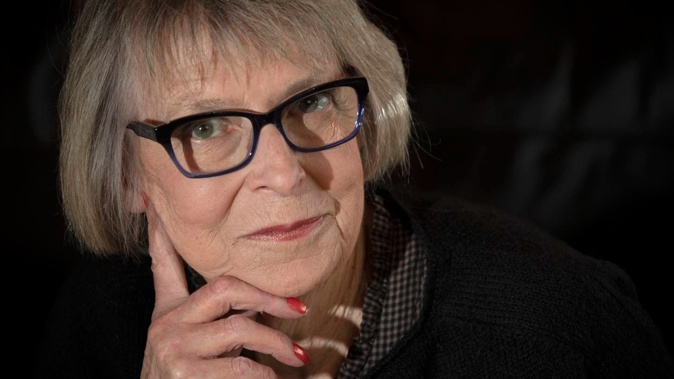
Robyn Cameron has terminal cancer but you would not know it to look at her or speak to her.
The 74-year-old says that’s because of a “life-extending” drug she imports from Bangladesh - a drug she fears she will no longer be able to get if a proposed law change goes through.
Her comments come as the Government’s Health Committee prepares to report back to Parliament on Wednesday on the Therapeutic Products Bill, including potential amendments.
In its current form, the Bill would make it illegal for people in New Zealand to import medication from overseas.
Cameron said that outcome would be “pretty devastating”.
The resident of Okere Falls, near Rotorua, said she was diagnosed with terminal lung cancer in mid-December and given three to five years to live.
She had never been a smoker and had no symptoms, only seeing the doctor after experiencing issues with her breasts.
But a CT scan revealed she had lung cancer.
She was left in “disbelief”.
“I had no idea.”
She said after her diagnosis her oncologist gave her two treatment options - chemotherapy and taking a medication funded in New Zealand, or importing an unfunded medication, Tagrix, from Bangladesh.
“The results they were getting with this [Tagrix] if we could afford to do it - they were pretty impressed,” she said.
On Christmas Eve, she took her first dose of the drug.
She takes one pill daily - a three-month supply costs $2800.
Her oncologist writes a prescription and sends it to the humanitarian organisation - Beacon Medicare NZ - in Auckland, which then contacts the organisation in Bangladesh.
“I have it [Tagrix] within a week in my mailbox.”
Robyn Cameron says she can "absolutely" live life as normal by taking Tagrix. Photo / Andrew Warner
Since taking Tagrix, a CT scan has shown the tumour in her lung had shrunk, she said.
While the drug was not curative, Cameron believed it would extend her life.
She said it allowed her to live her life as normal - taking walks, visiting her neighbours, going out for lunch with friends in Rotorua, playing mahjong and doing the housework.
She said if the Therapeutic Products Bill was passed in its current form, she would no longer be able to get Tagrix and will need to undergo alternative treatment - chemotherapy and a different medication.
“Chemotherapy is much tougher on you than just taking a pill.”
Cameron called on the Government to “look at more individual needs”.
“It would be pretty devastating, really, to know that what you’ve been taking that’s working for you, you can’t have it anymore because it’s illegal to bring it in. It just doesn’t seem right to me.
“They need to take a bit more time and have a look at what sort of an effect it may have on people’s lives.”
On May 31, she and her husband, Eric Cameron, participated in a protest against the Bill in Gisborne, which was attended by about 50 people. They offered their support to Theresa Zame - a Gisborne woman who is in the same position as Robyn and who started a petition against the Bill.
Zame’s petition called upon the House of Representatives to amend the Bill to allow patients to import prescription medication.
The petition received 5681 signatures and was presented to the select committee on June 7, according to the Parliament website.
Eric Cameron, 77, said he and Robyn had been married 54 years and have three grandchildren. The pair were originally from Gisborne and had lived in Okere Falls for more than 30 years.
He said it was a “shock to the system” finding out his wife had cancer.
“They put you on a drug that seems to be working well and then all of a sudden, the next shock to the system, it’s going to stop.”
According to the Parliament website, the Therapeutic Products Bill is intended to replace the Medicines Act 1981 and the Dietary Supplements Regulations 1985 to provide for the comprehensive, risk-proportionate regulation of therapeutic products, such as medicines, medical devices, natural health products, and active pharmaceutical ingredients.
The Bill was introduced to Parliament on November 30 last year and passed its first reading on December 14.
Health Minister Dr Ayesha Verrall is in charge of the Bill.
Approached for comment, Verrall’s office said the Government and Health Committee had heard the public’s concerns about the Bill’s ban on personal importation.
In the coming week, the Health Committee would report back to Parliament on the Bill and may propose amendments to the Bill on this, and other issues.
Verrall’s office said it would be inappropriate to comment before the committee reports back on Wednesday.
Take your Radio, Podcasts and Music with you

/cloudfront-ap-southeast-2.images.arcpublishing.com/nzme/K5H3T3OV6BHQDOQYV5QPJHFGEA.JPG)








